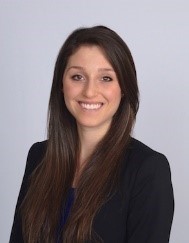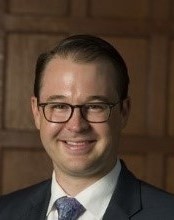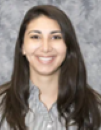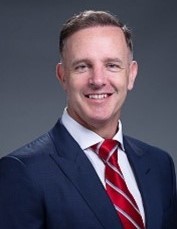Shared Content Block:
Surgery Styles -- directory
Shared Content Block:
Surgery Styles -- prevent images from going 100% wide on mobile
Thoracic Surgery Fellowship Program
Welcome to the Thoracic Surgery Fellowship Program at the University of Colorado. Our program is a three-year fellowship which was established in 1977. Our mission is to provide a very well-rounded thoracic surgical education in all facets of our specialty. Our global objective is to prepare the graduates of our program to step into their careers prepared to meet the challenges of the profession, regardless of their ultimate career goals.
During the course of the three-year curriculum, fellows rotate through the University of Colorado Hospital, Children's Hospital Colorado, and the Department of Veterans Affairs Medical Center in Denver. These rotations provide a robust and sophisticated experience in all facets of adult and congenital heart disease and general thoracic surgery. The first two years of the three-year curriculum are designed to provide an in-depth experience in each of these subspecialty areas and prepare the fellow for eligibility for the American Board of Thoracic Surgery examination process. The third year of the fellowship is designed in a manner to permit the resident to focus in an area relevant to their ultimate career goals. For example, some of our fellows focus their activities in the arena of general thoracic surgery, and others in the arena of congenital heart surgery. Regardless of a fellow's career goal, the faculty is absolutely committed to helping all residents achieve their goals.
The graduates of our program have established very successful careers across the country. Our graduates are established cardiac and thoracic surgeons in both academic medical centers and private practice. Regardless of the particular area of clinical focus, the graduates of our programs have consistently provided feedback that they were more than ready to function independently upon completion of the residency program.
Overview
The global objective of the thoracic surgery fellowship program is to teach fellows the skills necessary to become well-rounded cardiothoracic surgeons. In addition, it is our interest to align our training program with modern career objectives. The rotation schedule for the fellowship is designed to achieve this global objective, while at the same time permitting enough flexibility within the program to accommodate the desire of the fellow to focus on a particular subspecialty, such as general thoracic or adult cardiac surgery. Throughout the fellowship, the fellow is given graded responsibility both in and outside the operating room.
Year 1
During the first year, a fellow’s time will be divided between the adult cardiac service and the general thoracic service.
Adult Cardiac Surgery
The adult cardiac surgery service will teach the fellow the indications for surgery of ischemic and valvular heart disease and the medical management of these patients. The fellow will be responsible for the preoperative evaluation of patients and will learn the risks of the operations and how to counsel patients appropriately. The fellow will perioperatively manage the patients following complicated cardiac and general thoracic procedures, including ICU care which involves ventilator management, nutritional support, inotropic management, and management of intra-aortic balloon pumps. The fellows will acquire graded responsibilities as primary surgeon to perform operations for coronary revascularization, valve repair and replacement, and aortic disease, as well as for heart and lung procurements for transplantation.
General Thoracic Surgery
The fellow will evaluate and manage thoracic malignancies including lung, esophageal, and mediastinal tumors, as well as surgical lung infections. The resident will stage thoracic malignancies, utilize appropriate adjunctive protocols for chemotherapy and radiation therapy, and provide intraoperative airway management and planning of major airway resections. The fellow will also evaluate, manage, and provide operative treatment of patients undergoing lung transplantation and will acquire graded intraoperative responsibility as surgeon for operations on the lung, chest wall, mediastinum, and esophagus
In the first year, the fellow will also acquire a working knowledge of echocardiography, nuclear cardiology, cardiac stress tests, pulmonary function studies, chest imaging (CT and MRI), and esophageal motility. The fellow will become sufficiently familiar with these tests to be able to independently interpret them.
By the end of the first year, it is the expected that the fellow is fully capable of performing straightforward cardiac surgery with minimal assistance. Virtually all general thoracic cases are performed by the fellow with faculty assistance.
Year 2
Adult Cardiac Surgery
The second year is devoted to the practice of adult cardiac surgery at the University of Colorado Hospital and the VA Medical Center, as well as gaining exposure to pediatric cardiac surgery at Children’s Hospital Colorado. It is expected during the second year that fellows will develop an increased understanding of the medical management of heart failure, the indications and contraindications for heart transplantation, the management of heart transplant recipients, and the indications for ventricular assist devices.
The fellows will continue to assume more responsibility as primary surgeon for operations for myocardial revascularization, valvular heart disease, and heart procurements. The fellow will also assume graded responsibility as primary surgeon in the placement of ventricular assist devices.
Pediatric Cardiac Surgery
The fellow will learn the pathophysiology of the common congenital heart anomalies as well as the fundamentals of cardiopulmonary bypass in infants and children. The fellow will also learn the perioperative hemodynamic management of pediatric cardiac surgical patients and will acquire graded intraoperative responsibility as surgeon for operations to correct atrial septal defects, ventricular defects, patent ductus arteriosus, and coarctation of the aorta.
Year 3
Adult Cardiac and/or General Thoracic Surgery
By the beginning of the third year, the fellow is expected to have made a decision regarding his/her ultimate career goals and sub-specialization. Once this decision has been made and the fellow has demonstrated skills to be ABTS eligible, the fellow’s experience is focused in the chosen area. This is typically for the final six to nine months of the fellowship. Such areas might include esophageal surgery, minimally invasive thoracic surgery, valve repair, etc. In addition, all fellows will assume responsibility as primary surgeon on heart and lung transplants as well as insertion of ventricular assist devices.
Application Process
Applications should be made through the Electronic Residency Application System (ERAS) by completing the appropriate forms and submitting the required supporting material. After review of this material, candidates are selected for in-person interviews.
Our interview season runs from February through March. Candidates will be contacted by e-mail regarding their application status.
Candidates must have successfully completed an ACGME-accredited General Surgery Residency. A passing score on the USMLE or COMLEX-USA exam is required to be considered for an interview. We require three letters of recommendation and accept no more than four.
Residents in our program must be a U.S. citizen or lawful permanent resident
to train at the University of Colorado School of Medicine.
Contact Information
Jennifer Yang, Program Coordinator
[email protected]
Phone: 303-724-2822
Fax: 303-274-2682
University of Colorado School of Medicine
Anshutz Medical Campus
12631 E. 17th Avenue, Room 5401, Mail Stop C-291
Aurora, CO 80045
It is our ultimate goal to prepare our residents not only to satisfactorily pass the ABTS certification examination, but to excel beyond that to a level of expertise that will allow the resident to become a future leader in their area of specialty. To assist in this endeavor we have many educational activities which include:
- Cardiac catheterization conferences.
- An important multi-disciplinary general thoracic surgical oncology conference is held weekly with attendance of pulmonologists, oncologist, radiation oncologists, radiologists, as well as thoracic surgeons.
- Surgical Grand Rounds.
- Morbidity and Mortality Conferences.
- Journal club held with area cardiothoracic surgeons.
- Weekly teaching conferences directed by thoracic surgical fellows.
- Research opportunities allowing residents exposure to national meetings.
.jpg?sfvrsn=7cb116bb_2)
Christian Ghincea, MD
3rd-Year Fellow
General Surgery Residency: University of Colorado
Medical School: University of Colorado
.jpg?sfvrsn=60b116bb_2)
Eric Etchill, MD
3rd-Year Fellow
General Surgery Residency: Johns Hopkins University
Medical School: University of Pittsburgh School of Medicine

Anna Gergen, MD
2nd-Year Fellow
General Surgery Residency: University of Colorado
Medical School: Georgetown University School of Medicine

Chase Corvin, MD
2nd-Year Fellow
General Surgery Residency: University of Chicago
Medical School: Georgetown University School of Medicine

Christine Alvarado, MD
1st-Year Fellow
General Surgery Residency: University Hospitals Cleveland Medical Center
Medical School: Northwestern University The Feinberg School of Medicine

Jason Mitchell, MD
1st-Year Fellow
General Surgery Residency: Massachusetts General Hospital
Medical School: Harvard Medical School
From 1977 through 2013, 36 fellows completed the three-year training program at the University of Colorado School of Medicine. Nineteen of these fellows initially took academic positions. The remaining fifteen are practicing from Idaho to Florida. All of our fellows who have taken both parts of the American Board of Thoracic Surgery exam have become board certified.
With the teaching system instituted by Dr. Fullerton, fellows are able to spend more of their fellowship in the area they intend to practice while still obtaining the required index case required by the American Board of Thoracic Surgery. All areas of cardiothoracic surgery are experienced in our fellowship program. Adult cardiac, pediatric cardiac, general thoracic and transplant are well covered in the three-year program.
Our well rounded program has enabled fellows to be independent operators either in private practice or academia once their training has been completed.
Stan Carson, MD – 1977
Private Practice, Denver, CO
David Campbell, MD – 1979
Professor, Children’s Hospital of Colorado, Aurora, CO
Richard Phillips, MD – 1980
Private Practice, Washington State University
Frank Manart, MD – 1981
Private Practice, Vail, CO
Lawrence Patzelt, MD – 1982
Private Practice, Grand Rapids, MI
John C. Heiser, MD – 1983
Private Practice, Grand Rapids, MI
Thomas Cain, MD – 1984
Private Practice, Green Bay, WI
Douglas Cowgill, MD – 1985
Dean Clinic/St. Mary’s Hospital, Madison, WI
Fred Woelfel, MD – 1986
Private Practice, Pittsburgh, PA
Mark Ammons, MD – 1987
Private Practice, Denver, CO
Glenn Whitman, MD – 1988
Professor, Johns Hopkins University
Mike See, MD – 1989
Private Practice, Columbia, MO
David Fullerton, MD – 1990
Professor, University of Colorado, Aurora, CO
John C. St. Cyr, MD – 1991
Medical Consultant, Minnesota
James Albert, MD – 1992
Private Practice, Colorado Springs, CO
Michael Grosso, MD – 1993
Research, Philadelphia, PA
James Brown, MD – 1994
Professor, University of Maryland
Steve Jones, MD – 1995
Private Practice, Glenwood Springs, CO
James Jaggers, MD – 1996
Professor, The Children's Hospital of Colorado, Aurora, CO
Mary Wollerming, MD – 1997
Skaggs Medical Center, Branson, MO
Max Mitchell, MD – 1998
Professor, Children's Hospital of Colorado, Aurora CO
Irving Shen, MD – 1999
Oregon Health Sciences University, Portland, OR
Peter Seirafi, MD – 2000
West Palm Beach VA, West Palm Beach, FL
Joseph Cleveland, Jr, MD – 2001
Professor and Chief, University of Colorado, Aurora, CO
Brett Sheridan, MD – 2002
Private Practice, San Francisco, CA
Craig Selzman, MD – 2003
Professor and Chief, University of Utah, Salt Lake, UT
Larry Brinckerhoff, MD – 2004
Associate Professor, Boston University
Tim Sherwood, MD – 2005
Private Practice, Fredericksburg, VA
Aditya Kaza, MD – 2006
Assistant Professor, Primary Children’s Medical Center, University of Utah
Sunil Malhotra, MD – 2007
Private Practice, Portland, ME
Gonzalo Carrizo, MD – 2008
Private Practice, Visalia, CA
T. Brett Reece, MD – 2009
Professor, University of Colorado, Aurora, CO
John Charles Dugal, Jr, MD – 2010
Private Practice, Anchorage, AK
Ramesh Singh, MD – 2011
Private Practice, Fairfax, VA
Ashok Babu, MD – 2012
Private Practice, Nashville, TN
Sagar Damle, MD – 2013
Private Practice, Atlanta, GA
David Mauchley, MD – 2015
Associate Professor, University of Washington, Seattle, WA
Justin Reeves, MD – 2016
Private Practice, Spokane, WA
Ryan Shelstad, MD – 2016
Private Practice, Lincoln, NE
Edward Bergeron, MD – 2017
Private Practice, Traverse City, MI
Giorgio Zanotti, MD – 2017
Private Practice, Indianapolis, IN
Charles Cole, MD – 2018
Private Practice, Fayetteville, AR
Brendan Dewan, MD – 2018
Private Practice, Austin, TX
Marshall Bell, MD – 2019
Private Practice, Oklahoma City, OK
Jordan Hoffman, MD – 2019
Associate Professor, University of Colorado, Aurora, CO
Christopher Holley, MD – 2020
Private Practice, St. Louis Park, MN
Andrew Mesher, MD – 2020
Private Practice, Boise, ID
Vicente Valero III, MD – 2021
Private Practice, New Orleans, Louisiana
Neil Venardos, MD – 2021
Assistant Professor, University of Oklahoma
Yihan Lin, MD – 2022
Assistant Professor, Cardiac Surgery, Stanford University
Brandon Wojcik, MD – 2022
Private Practice, Traverse City, Michigan
Michael Cain, MD – 2023
Assistant Professor, University of Colorado
Lauren Taylor, MD – 2023
Assistant Professor, Virginia Commonwealth
Mohamed Eldeiry, MD - 2024
Assistant Professor, University of Washington, Seattle, WA
Alison Mungo, MD – 2025
Assistant Professor, University of Colorado
Jason Zakko, MD – 2025
Assistant Professor, University of Connecticut